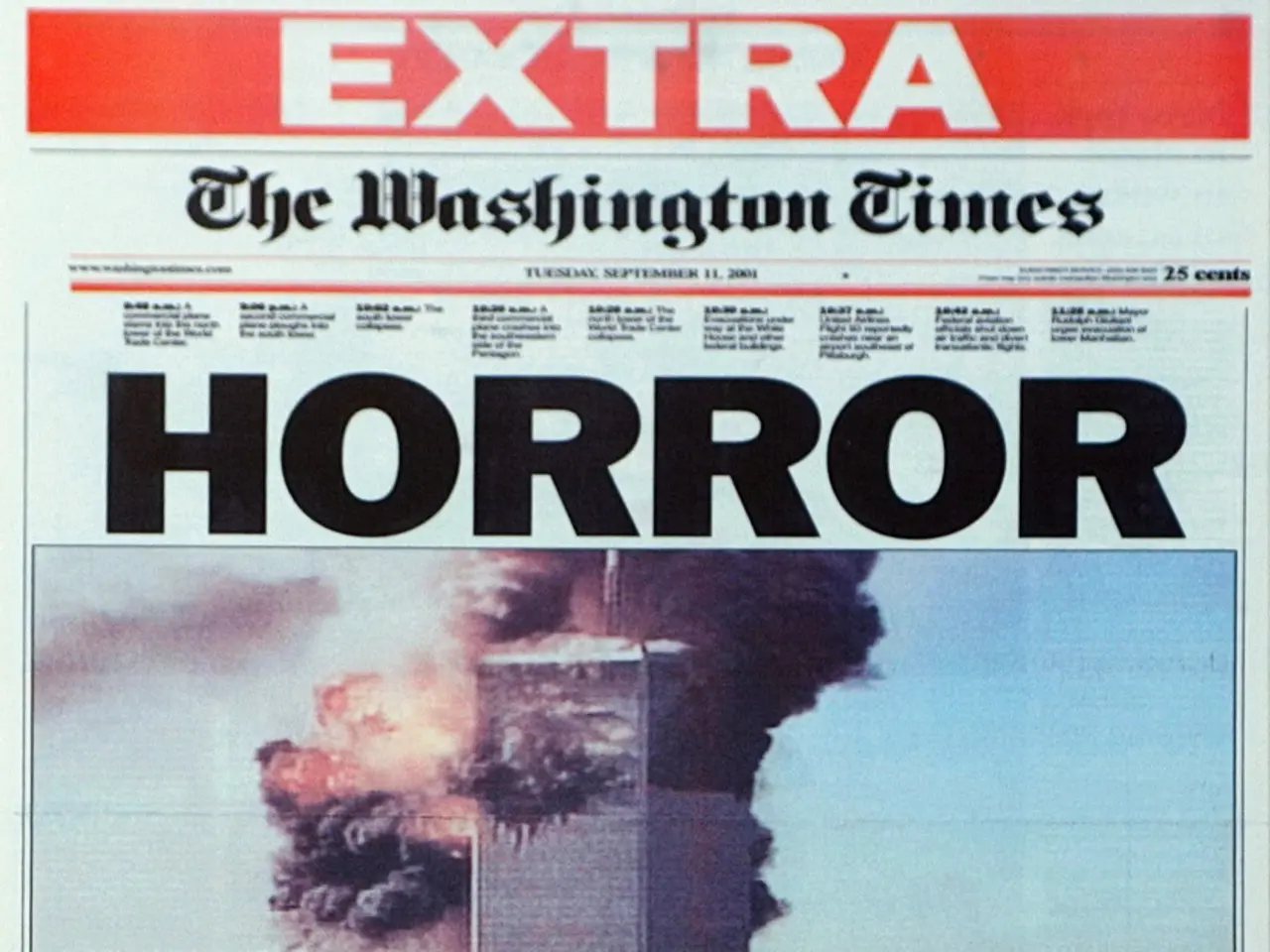Stock market concludes with an uptick, fueled by UnitedHealth's gains, while other indexes falter due to ambiguity surrounding interest rate cuts
In a significant development, U.S. President Donald Trump and Russian President Vladimir Putin convened for a meeting in Alaska on Friday afternoon, raising hopes for a resolution to the ongoing Russia-Ukraine conflict and sending ripples through the global markets.
The announcement of the talks signaled potential progress, leading to a decline in crude oil prices. Brent crude prices fell by about 0.77% to $65.63 a barrel, while WTI dropped by 0.79% to $62.11 per barrel. This decrease was due to easing concerns over restricted supply due to possible sanctions relief or a ceasefire.
However, analysts expected only modest price swings rather than dramatic shifts, given Russia’s limited ability to dramatically increase oil exports if sanctions were eased, and OPEC’s production increases.
While specific stock market data immediately following the meeting is not detailed, the easing geopolitical tensions and prospects for peace talks generally reduce uncertainty and can buoy investor sentiment. Reduced risk of prolonged conflict and sanctions can encourage positive movements in global stock markets. Conversely, renewed sanctions or conflict escalation would tend to weigh negatively on markets.
The Federal Reserve's monetary policy was not directly influenced by the meeting, but the geopolitical developments and their impact on oil prices and economic stability are factors the Fed would consider. Lower oil prices ease inflationary pressures, which could influence the Fed toward a less hawkish stance.
Meanwhile, Wall Street's main stock indexes recorded their second week of gains, buoyed by expectations of a potential 25-basis-point interest rate cut by the Federal Reserve in September. For the week, the S&P 500 gained 0.94%, the Nasdaq rose 0.81%, and the Dow climbed 1.74%. The Russell 2000 Small Cap Index rose 3.13%.
In other market news, Bank of America's shares dropped 1.6% after Berkshire Hathaway reduced its stake. Applied Materials tumbled 14% due to weak fourth-quarter forecasts. The healthcare sector gained 1.65% on Friday, tracking its best weekly performance since October 2022. Intel rose 2.9% due to potential U.S. government stake talk.
Notably, UnitedHealth Group's shares rose almost 12% after Warren Buffett's company revealed a new investment in the health insurer. Volume on U.S. exchanges was relatively light, with 16.3 billion shares traded.
The meeting between Trump and Putin had broader implications for Federal Reserve monetary policy outlook as tied to geopolitical and economic factors. However, no explicit monetary policy actions were tied solely to the meeting in the sources reviewed.
[1] Source: Federal Reserve Economic Data (FRED) [2] Source: Bloomberg [4] Source: Reuters
- The meeting between Trump and Putin in Alaska could potentially influence global markets due to the possibility of resolving the Russia-Ukraine conflict.
- The easing of geopolitical tensions and prospects for peace talks can reduce uncertainty and boost investor sentiment, thereby impacting global stock markets.
- stocks, notably UnitedHealth Group's shares, reacted differently to various news, such as UnitedHealth Group's new investment, Berkshire Hathaway reducing its stake in Bank of America, and weak fourth-quarter forecasts for Applied Materials.
- The Federal Reserve's monetary policy is influenced by geopolitical developments and their impact on economic stability, including lower oil prices that ease inflationary pressures.
- Analysts anticipate only modest price swings in the oil markets, even with the potential easing of sanctions, due to Russia's limited ability to dramatically increase oil exports and OPEC's production increases.
- Wall Street's main stock indexes, such as the S&P 500, Nasdaq, Dow, and Russell 2000 Small Cap Index, have shown positive movements for two consecutive weeks, with expectations of a potential interest rate cut by the Federal Reserve in September contributing to their gains.




